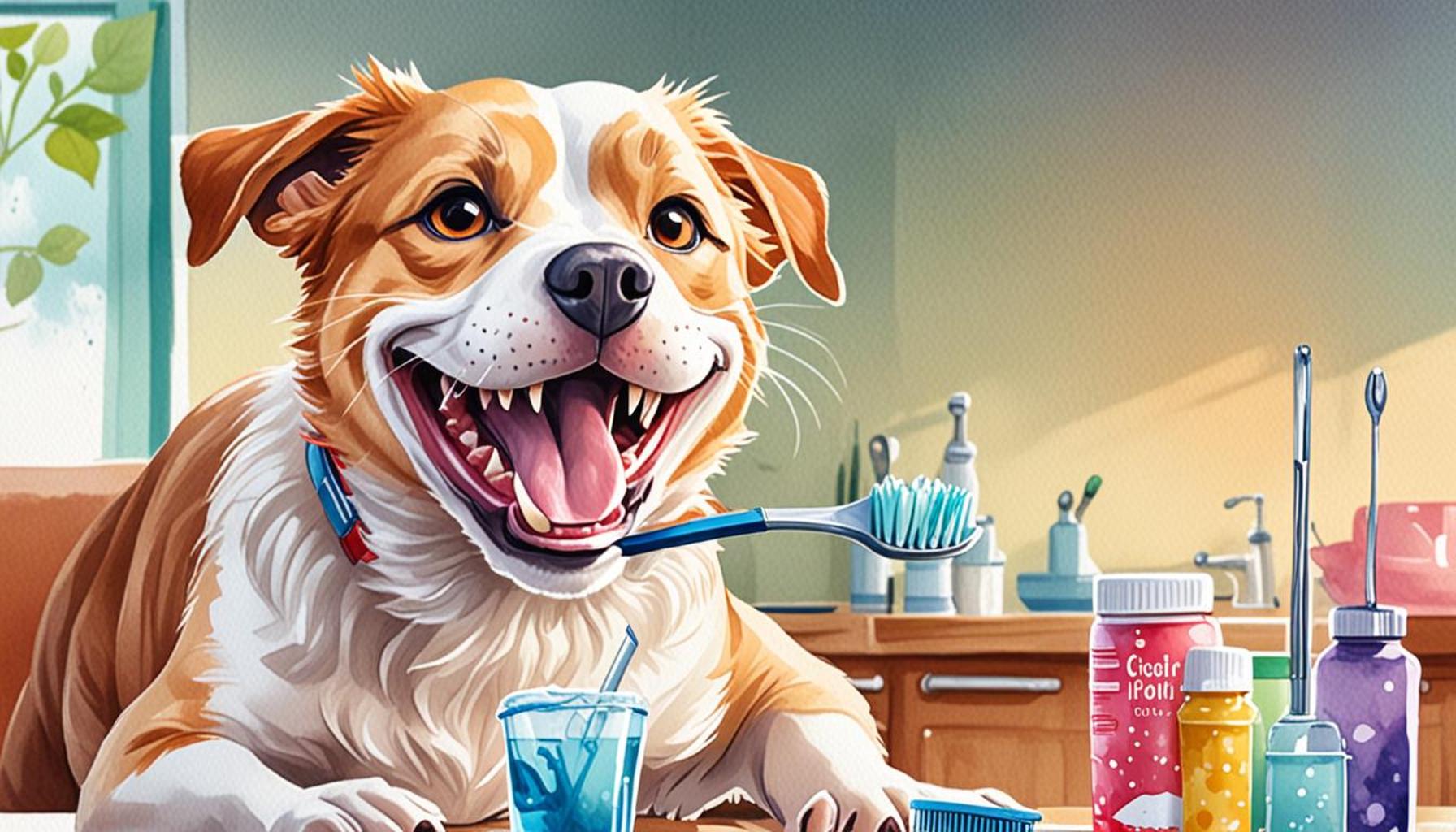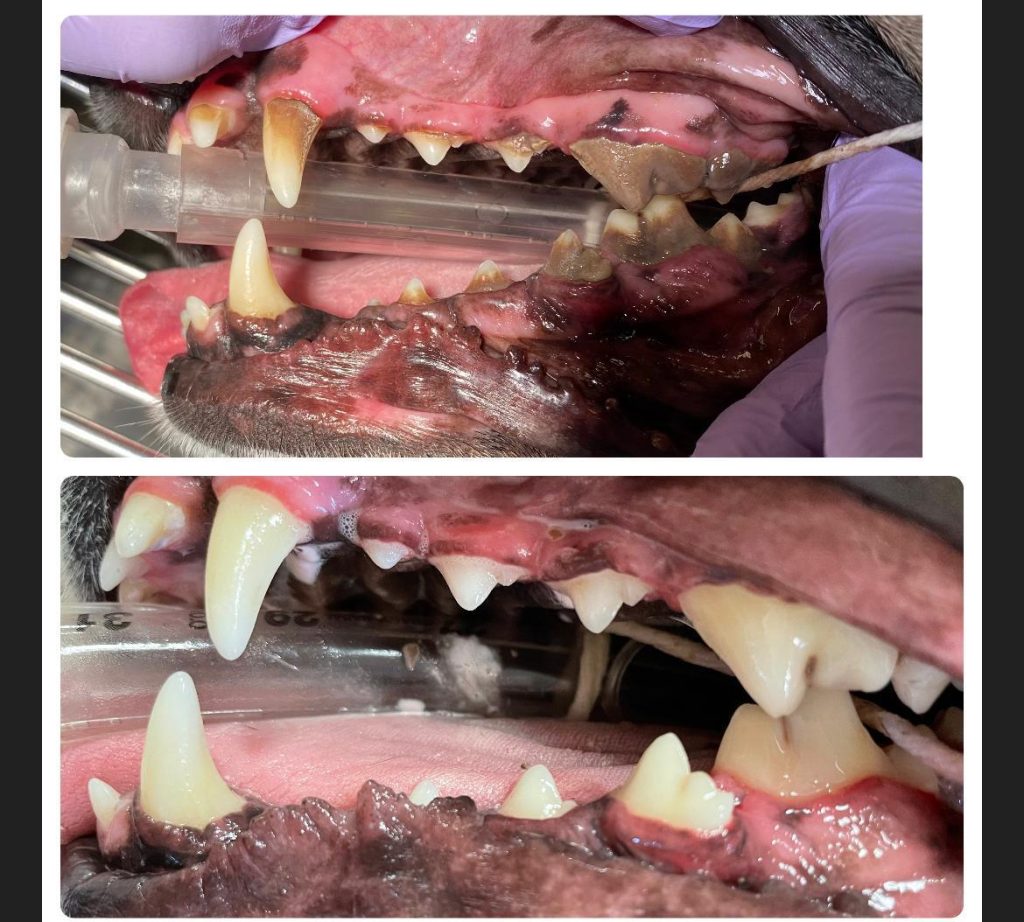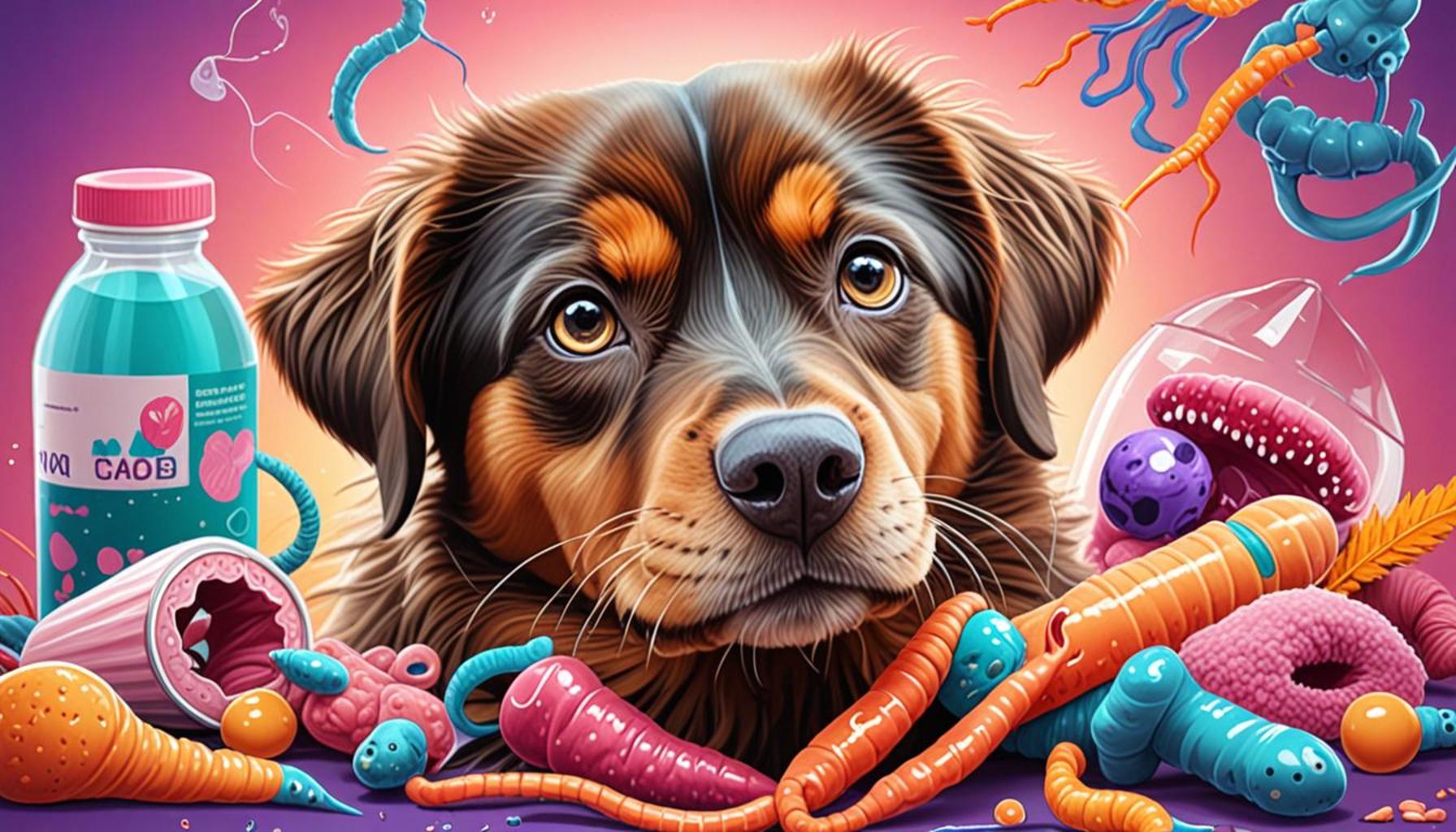The Importance of Dental Health in Pets: How to Keep Your Pet’s Teeth in Check

Understanding Pet Dental Health
When it comes to our furry companions, dental health is often overlooked. However, just like humans, pets can suffer from oral diseases that impact their overall well-being. A staggering 80% of dogs and 70% of cats show signs of dental disease by age three, making awareness critical for pet owners. Early intervention can make a world of difference, yet many pet owners remain blissfully unaware of the warning signs until it’s too late.
The Consequences of Neglect
Failing to maintain your pet’s dental hygiene can lead to serious health issues that extend far beyond bad breath and yellowed teeth. Some potential risks include:
- Tooth Loss: Advanced dental disease can result in painful tooth loss, causing distress and discomfort for your pet. This may lead to difficulty eating or changes in behavior, as pets may hesitate to chew their food or engage in play due to pain.
- Infections: Bacteria from gum disease can enter the bloodstream, potentially harming major organs such as the heart, kidneys, and liver. This grave consequence, known as bacterial endocarditis, can lead to severe health conditions that may be life-threatening.
- Bad Breath: Persistent halitosis is often a sign of underlying dental problems, typically indicating gum disease or tooth decay. It’s crucial to address this issue early; otherwise, it could be indicative of even more significant health concerns.
Why Pet Dental Care Matters
Maintaining clean teeth and healthy gums is essential for your pet’s happiness and longevity. Regular dental care not only prevents disease but also:
- Enhances Quality of Life: Pain-free pets are happier and more energetic, providing owners with a cherished companion for years to come. Regular brushing and dental check-ups can prevent the pain associated with oral diseases that could drastically affect a pet’s quality of life.
- Saves Money: Preventive care can reduce the need for costly veterinary fees linked to advanced dental treatments. Investing in your pet’s dental health can save you in the long run, as major surgeries or treatments can run into thousands of dollars.
- Strengthens Bonding: Engaging in dental routines, such as brushing your pet’s teeth or providing dental chews, can deepen your connection with your pet. These regular interactions promote trust and understanding between you and your furry friend.
Join us as we explore effective strategies for keeping your pet’s teeth in check and ensuring their dental health remains a priority. From choosing the right dental products to scheduling routine vet check-ups, taking proactive steps can lead to a healthier, longer life for your beloved pet. Remember, your pet relies on you for their health, and maintaining dental wellness is a vital part of that responsibility.
LEARN MORE: Click here for valuable tips

Recognizing the Signs of Dental Problems
Understanding the indicators of dental issues in pets is crucial for timely intervention. Many pet owners may not recognize the early signs of oral disease, leading to delays in treatment that could worsen their pet’s health. Some common symptoms to watch for include:
- Discomfort while Eating: If your pet is reluctant to eat or shows signs of pain while chewing, such as whining or dropping food, it could indicate dental discomfort.
- Excessive Drooling: While a moderate amount of drooling can be normal, an increase in drooling, especially when accompanied by bad breath, can signal dental problems.
- Visible Tartar Build-up: A yellowish-brown layer of tartar on your pet’s teeth is a clear indication that dental hygiene is lacking. Regular home checks can help you catch this early.
- Pawing at the Mouth: If your pet persistently paws at their mouth or face, it could be a sign of dental pain and should prompt a closer examination.
Understanding Common Dental Diseases
Familiarizing yourself with the types of dental diseases that can affect your pet is a proactive step in maintaining their oral health. Some of the most prevalent conditions include:
- Periodontal Disease: This absolutely prevalent condition affects the supporting structures of the teeth, including gums and bone. It begins with gingivitis, characterized by inflamed gums, and can progress to severe infections that lead to tooth loss.
- Tooth Fractures: Pets, particularly those that enjoy aggressive chewing or playing fetch with hard objects, can suffer from fractured teeth. This not only causes immediate pain but also opens the door to infection.
- Oral Tumors: Though less common, oral tumors can develop in pets and may not become apparent until they are quite advanced. Regular veterinary check-ups are essential for detecting these serious conditions early.
Being vigilant about your pet’s dental health means more than just preventing bad breath; it is about nurturing their overall health. Just as you would make regular appointments for your own dental check-ups, doing the same for your pet ensures their teeth remain strong and their gums healthy.
Creating a Dental Care Routine
Establishing a consistent dental care routine is vital for your pet’s health. The American Veterinary Medical Association recommends beginning at a young age, as early introduction to dental care can lead to a more cooperative adult pet. Here are some steps you can take:
- Regular Brushing: Aim to brush your pet’s teeth daily with a toothbrush designed for pets and toothpaste formulated for animals. This routine not only removes plaque but also helps your pet acclimate to dental care.
- Healthy Chewing Options: Providing dental chews specifically designed to reduce plaque and tartar can be an excellent supplementary measure in your pet’s dental care routine.
- Professional Cleanings: Schedule annual dental cleanings with your veterinarian. These professional procedures remove tartar buildup that can’t be addressed with at-home care.
By taking proactive measures in your pet’s dental health, you are setting the stage for a longer, happier life. Stay tuned as we delve deeper into the best products and practices available to keep your pet’s teeth in check.
| Advantage | Details |
|---|---|
| Prevention of Dental Disease | Regular dental care significantly reduces the risk of periodontal diseases, ensuring your pet’s health. |
| Improved Overall Health | Maintaining dental hygiene helps in preventing bacteria that may lead to heart, liver, and kidney issues. |
Dental health is often overlooked in pet care, yet it plays a crucial role in overall well-being. Regular brushing of your pet’s teeth can significantly reduce the chances of dental disease, which affects a substantial number of pets over the age of three. Investing time in dental hygiene not only keeps teeth healthy but also ensures that bad breath, a common issue associated with poor dental care, is eliminated.Moreover, the connection between dental health and systemic health cannot be overstated. Periodontal disease can lead to bacteria entering the bloodstream, potentially impacting vital organs. Routine veterinary check-ups that include oral examinations, along with at-home dental care practices, form the cornerstone of preventive health strategies for pets. By giving attention to their dental needs now, you’re securing a healthier, happier life for your furry companion in the long run.
LEARN MORE: Click here for essential insights
Innovative Products for Dental Care
The market is overflowing with products designed specifically for maintaining your pet’s dental health. Understanding the various options available can help you to tailor a dental care regimen that suits your pet’s unique needs. Here are some innovative products that have gained popularity among pet owners:
- Water Additives: These are simple solutions that can be mixed with your pet’s drinking water. They work to reduce plaque and tartar buildup while also freshening your pet’s breath without the hassle of brushing.
- Dental Wipes: If brushing is a challenge, dental wipes can be an effective alternative. These wipes make it easy to remove tartar and food particles without needing to use a toothbrush, and they are particularly useful for pets who resist traditional brushing methods.
- Chew Toys: Many chew toys are specifically designed to promote dental health. They often contain textures that help to clean teeth and massage gums, fostering an interactive way to keep up your pet’s oral care while providing them with entertainment.
- Veterinary Dental Treats: Approved by veterinarians, these treats can be an excellent way to reward your pet while also helping to clean their teeth. Look for options that meet the Veterinary Oral Health Council (VOHC) Seal of Acceptance to ensure they are effective.
Understanding the Cost of Neglected Dental Health
Many pet owners may underestimate the costs associated with poor dental health in their pets. Ignoring dental hygiene can lead to greater health issues, resulting in more expensive treatments down the line. The initial savings from neglecting dental care could quickly be offset by costs from veterinary visits for dental disease. According to the American Veterinary Dental College, treatment for periodontal disease can range from $200 to $1,000 or more, depending on the severity. This potential expense emphasizes the importance of preventive care.
Moreover, beyond just immediate costs, failing to address dental health can lead to systemic health issues. Bacteria from infected gums can enter the bloodstream and contribute to serious conditions such as heart disease, kidney disease, and even liver issues. Thus, regular dental care is not merely a cosmetic necessity; it is integral to your pet’s overall well-being.
The Role of Your Veterinarian
Veterinarians play a crucial role in maintaining your pet’s dental health. During routine check-ups, they can assess your pet’s mouth and teeth, identify any emerging issues, and recommend appropriate treatments. Many veterinary clinics also provide dental health education for pet owners, laying foundations for better at-home practices.
Additionally, some veterinary practices offer dental health plans, ensuring regular check-ups and cleanings are part of your care routine without breaking the bank. Enlisting the expertise of your veterinarian not only aids in identifying problems early but can also help demystify best practices in dental hygiene tailored to your specific pet.
In conclusion, as with any aspect of pet care, staying informed and proactive makes a significant difference. By integrating innovative products, understanding the financial implications of dental neglect, and utilizing your veterinarian’s knowledge, you can contribute to a healthier mouth and, ultimately, a healthier life for your beloved pet.
DON’T MISS: Click here for essential tips on preparing your home for a new pet
Conclusion
Maintaining optimal dental health in pets is crucial for their overall well-being and longevity. As pet owners, it is our responsibility to prioritize oral care alongside nutrition and exercise. By being aware of the implications that poor dental hygiene can have on your pet’s health, you not only protect their teeth and gums but also prevent potential systemic diseases that can arise from untreated dental issues.
Incorporating various dental care products—such as water additives, dental wipes, and veterinary-approved treats—can simplify your pet’s dental regimen while ensuring their teeth remain clean and healthy. Coupled with regular veterinary check-ups, these measures create a robust defense against dental diseases that could lead to serious health complications.
Moreover, understanding the financial impact of neglected dental health reinforces the importance of prevention over cure. While some pet owners may view dental care as an optional part of pet maintenance, the potential costs associated with dental disease can be substantial, both financially and emotionally.
Ultimately, staying proactive about your pet’s dental care is vital for fostering a long and happy life for your furry companions. By embracing education, utilizing available resources, and collaborating with your veterinarian, you will not only ensure your pet’s teeth are in check but will also contribute to their overall happiness and health. Make dental health a priority, and you will reap the rewards of a healthier, more vibrant pet for years to come.


